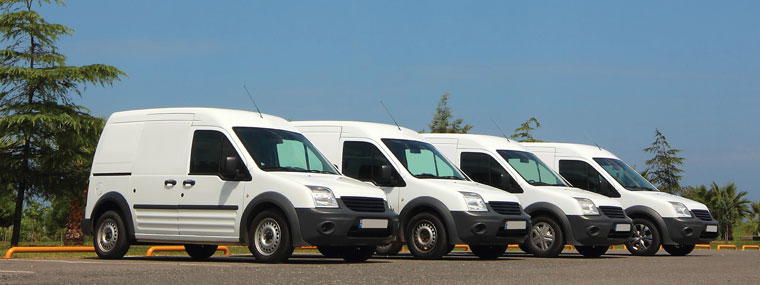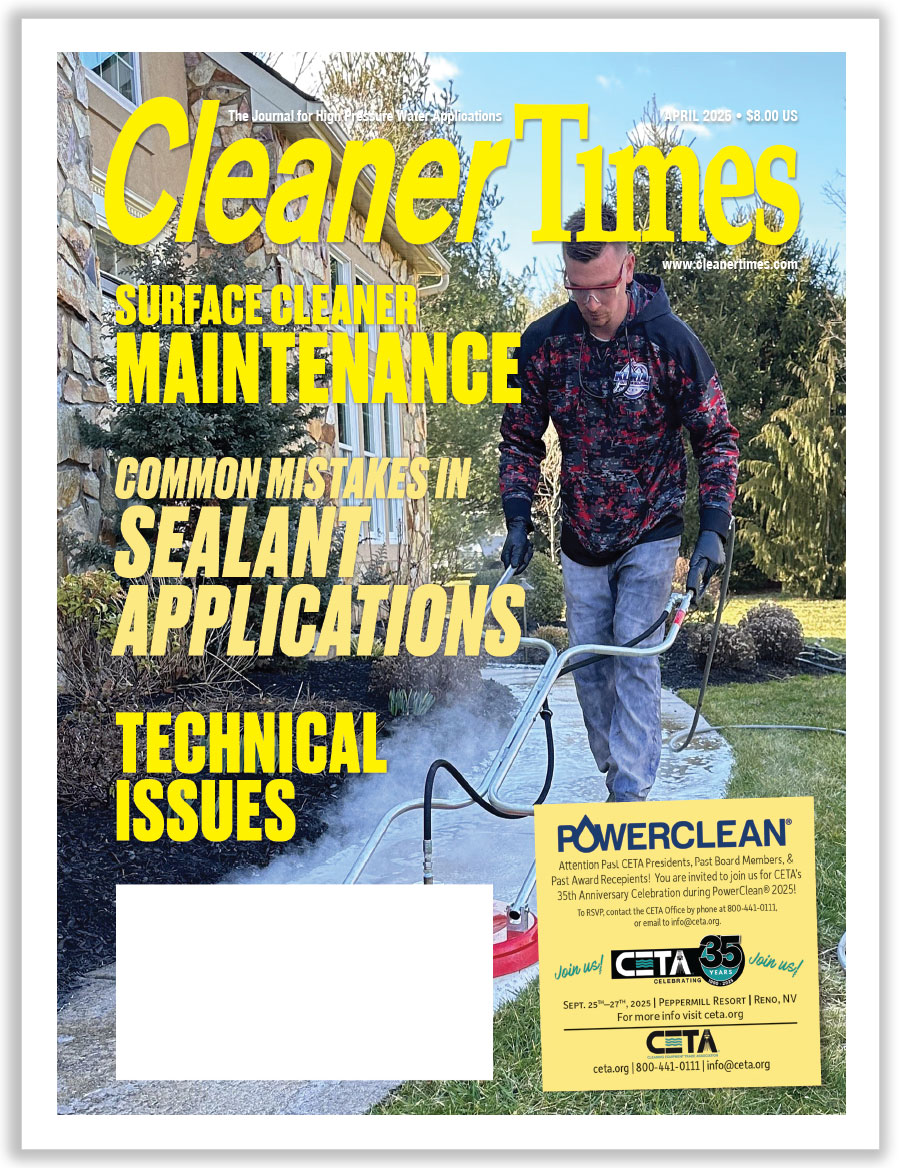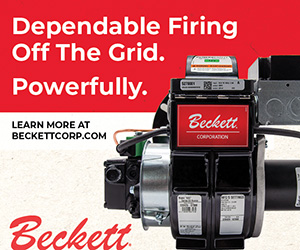
Inland Marine and Commercial Auto Policy Insurance
By Tom Svrcek / Published October 2023

Editor’s Note: This is part three of several articles that will cover different aspects of insurance. The previous two articles can be read at www.cleanertimes.com.
In future issues garage keepers’ insurance, workers’ compensation policies, contractors’ pollution liability policies, certificates of insurance, janitorial service bonds, and license and permit bonds will be covered.
Inland Marine Insurance
What is inland marine insurance? Inland marine insurance generally covers property that is movable or transportable in nature. It is often used to cover property that needs broader protection than what may be provided by the typical business owner’s policy.
For the mobile power washer it is normal to cover the following under an inland marine policy:
- Power wash unit
- Trailer
- Flat surface cleaner
- Water recovery system
- Hoses, reels, wands, and tanks
You should request coverage for fire, theft, vandalism, and collision.
These policies are normally written on an actual cash value basis. Discuss with your insurance agent to see if replacement cost is available to you.
Commercial Auto Policy
Whether you use your own car or a fleet of pickups, box trucks, and even trailers to get the job done, make sure you have all of the proper auto coverages. Investing in a comprehensive commercial auto policy not only is a smart business decision but also is required for many industries and businesses. Here are some important aspects to understand when it comes to commercial auto coverage.
Business Auto Insurance Coverage Options
Bodily injury liability coverage—It helps pay damages due to bodily injury to others for which you are responsible. If you are sued, it also helps pay for your defense and court costs.
Property damage liability coverage—It helps pay for damage due to property damage to others for which you are responsible. If you are sued, it also helps pay your defense and court costs.
Personal injury/medical payments coverage—It helps pay for injury-related costs not covered by health, workers’ compensation, or other insurance if you or your passengers are hurt, whether or not you are at fault for the accident.
Collision Coverage—It helps pay for a covered auto that is damaged by collision with another object. Coverage is subject to a deductible.
Comprehensive Coverage—It helps pay for loss of or damage to an insured vehicle not caused by a collision or vehicle rollover. Such claims could be from fire, theft, vandalism, glass breakage, or collision with an animal causing damage to your vehicle. Coverage subject to a deductible.
Uninsured/Underinsured Motor-ist Coverage—It helps pay for injuries and in some circumstances
property damage when you are involved in an accident with another person who is uninsured or does not have sufficient liability insurance.
Hired & Non-Owned Auto Coverage—Hired auto covers any liability you may face if you are in an accident while driving a hired/rented vehicle. This could be vehicles owned by your employees. It usually does not pay for physical damage to the vehicle itself. That is covered by the owner’s insurance.
Coverage kicks in if there is an auto accident, and you are sued. See the following examples below.
You send an employee to pick up lunch or supplies.
While on a business trip, you rent a car.
Rental Reimbursement—Coverage helps pay for a rental car if you are un-able to use your vehicle after an accident.
Towing and labor—Coverage reimburses you for the cost to tow your car to a repair shop and any roadside labor charges (such as for changing a tire or jump-starting a battery).
If you are towing a trailer, make sure you make your agent aware of this so that you have proper coverage.
You may be able to package many of these coverages together for a relatively small increase in premium, so talk to your independent agent to find out more.
If you are a small business owner who uses the same vehicle and the same auto insurance for both personal and business driving, you might not be fully covered. Numerous factors can trigger the need for commercial coverage, such as having employees drive your vehicle for work, transporting work-related items, and more. If you’re not sure whether you need commercial auto coverage, it is best to check with your agent or provider.
Your commercial auto coverage needs and costs depend on a great many variables. As you build your fleet, implementing a safety program and addressing the following areas can help reduce your risk.
Driver selection—For a small fee, your state’s department of motor vehicles (DMV) can provide you with your employees’ driving records. By hiring drivers with solid records, you can reduce the risk of accidents.
Employee training—Whether your employees are driving dump trucks or delivery vans, make sure they are well versed in your company’s safe driving policies, how to load and unload their equipment, and any other job-related activity that can result in accident or injury.
Problematic cargo—Some kinds of cargo and equipment could increase your risk in the event of an accident. Whether you are transporting ladders, power wash units, or chemicals (cleaning products), take the necessary precautions to secure and flag these items. Make sure your cargo and any lost business you might experience are covered in the event of a loss or theft.
Maintenance—Well-maintained vehicles have a lower risk of breaking down and causing accidents. Follow manufacturer recommended maintenance schedules, and keep records of all servicing and repairs. Pay special attention to older vehicles, and regularly inspect tires, brakes, and all turn/brake signals.
By keeping these factors in mind, you can keep your business moving and your drivers and vehicles safe, which can help reduce your risk of accidents and claims.
Every state defines the minimum mandatory amount of commercial auto coverage required for business. To comply with state law, you will need to purchase adequate coverage. But these minimums might not be enough. If you are a high-risk industry, have a large fleet of vehicles, or do not have the capital reserves to cover expenses that might spill over the limits of your coverage, consider purchasing additional coverage. Remember, in case of a lawsuit, your business is at risk.





